#IM SO ♥️♥️♥️♥️♥️♥️♥️♥️♥️
Explore tagged Tumblr posts
Text
remembering the snow
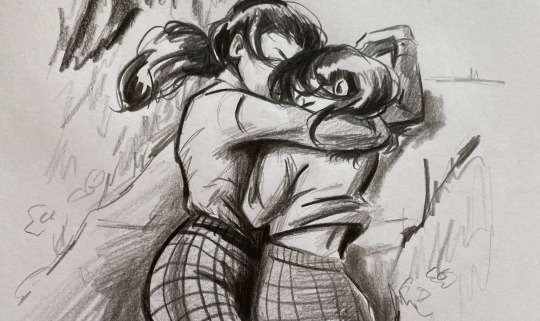
pairing: Imelda Reyes x Poppy Sweeting
word count: 3,2k
summary:
Imelda remembers the first time she saw snow.
Her parents always started the story telling her that she cried and cried and cried.
***
Or: a character study on Imelda and how she grew up because I love her & she doesn't get enough appreciation :)
cw: none, this is just a love letter to Imelda
a/n: or: this was the first oneshot I ever wrote, and it holds such a special place in my heart. I think it might be my favorite 🥹🫶

Imelda Reyes has never been one to do things by halves.
Her mother always talked about the circumstances of her birth with pride: Imelda came quickly as if she were eager to get out and see the world already, screaming even before she had fully left her mother's womb, determined to leave an indelible mark on the world.
The women in their village who had assisted the birth crossed themselves, chattering to each other in quick, soft, beautiful Spanish staccato about the baby who was already unlike any they had ever seen before. Strong and healthy and beautiful, her deep brown eyes already taking in her surroundings and watching them solemnly moments after her arrival.
Her father always talked about the circumstances of her childhood: running wild and free, flying before she could walk (a source of great pride), his little shadow who peppered him with endless questions about the world. He always brought her along to his work meetings much to everyone's delight; she was with him when he was offered the enviable position of Spanish Diplomat to the British Ministry of Magic.
At the age of five, they left the beautiful sleepy village where time hadn't seemed to exist. Imelda still dreams of long, hot, dusty days playing under the shade of orange trees, going to the market every two days with her mother draped in their finest silks, sleeping and lying around during the hottest part of the day, only leaving their house once the sun left its highest point and was about to disappear behind the mountains.
The older women in the village doted on her. If she thinks hard, she can recall their beautiful, wavering voices calling out to her as she raced past them: 'ten cuidado, cariño, te vas a mancar', 'ven aquí, cielo, te quiero ver la cara tan bonita', 'mira cómo se está creciendo, se nota que va a ser una belleza de mayor'...voices filled with comfort and love. She never knew anything different then.
She's their only child. Her mother was always brushing her hair and humming, trying to get her to sit still and listen to her endless fairy tales as the sun bore down on them; her father, treating Imelda like the son he had always wished for but accepting and loving her all the same. Sometimes, her mother would let her out of the house before the sun became too strong and they would fly around the mountains and be free free free.
Arriving to Edinburgh at the age of five, Imelda hadn't even realized she didn't speak the same language as the other children around her. As with everything else, she jumped in headfirst. Her mother always jokes that she became fluent in English the second she stepped foot on Scottish soil. To Imelda, it does seem that way. She can't ever remember not speaking in the soft Scottish burr, reminiscent of the soft Spanish she had left behind and still spoke at home.
As a child, she never had problems forging relationships with whoever was around her. She was brash and inquisitive and irresistible, taking charge wherever she went. The other children flocked around her, hanging on to her every word.
It changed, though, when her mother got her cough. It started out harmless enough, a slight cough and headache before bed each night. When her mother woke up every morning, she would be fine. But going to bed early changed to going to bed even earlier and earlier until it was time to accept what the three of them were steadfastly ignoring: she was getting worse.
Imelda was nine. She remembers her mother drying her tears with gentle, soft hands, caressing her cheeks and whispering to her that it would be fine. That she wasn't gone yet: they still had time.
'No pasa nada, mi amor. Siempre estaré contigo.'
At Hogwarts, things changed even more. She was a Slytherin and proud of it, but she never quite fit in with her classmates. She wasn't one of them, hadn't grown up with them, and they made sure she knew it. Gone were the days of running wild: she turned her single-minded determination to her studies and quidditch and found herself excelling at everything she put her mind to. It all came easily to her and she had no time for anyone who could distract her.
She wasn't a complete loner. She had her quidditch teammates, her partners in various classes, but nobody she hung out with outside of classes. She always studied alone, learned alone, trained alone.
(Of course, the picture she paints to her father in owls home is much different. He has enough on his mind - a daughter struggling to make friends is a non-issue as far as Imelda is concerned. And besides: she's fine.)
Imelda was quite content with the way things were working out for her. She would never admit if she was lonely or not, and enjoyed every part of her life. Until her fifth year, when everything began to change. Gone were her rigid schedules and studying alone and discipline. A new girl was sorted into Slytherin and Imelda found she didn't hate the girl's company. The two of them laugh together at night while they braid each others' hair, Imelda teaches her Spanish, and they have started to study together.
The new student drags her around Hogwarts and Imelda finds herself actually enjoying herself and enjoying spending time with the classmates she’s spent so many years ignoring.
This is when she meets Poppy Sweeting.
Well...Poppy swears that they met ages ago, during their first year when they were partnered together in Potions. Imelda has no recollection - that whole year was a blur - it was the year her mother succumbed to her illness - so she has to take Poppy's word for it.
She finds herself with friends for the first time in a long time. But, when the new student is running off with Sebastian doing Merlin-knows-what, things that Imelda definitely does not want to be a part of, she still finds herself seeking Poppy's company.
Poppy is sweet and fun and introverted in a way that Imelda finds familiar and comfortable: whereas Imelda turns to her studies and quidditch, Poppy often opts to spend time more time with beasts than humans. But there's something endearing about her earnestness and Imelda starts to find herself craving Poppy's calm company.
She always knows what to say when Imelda finds herself getting worked up over nothing.
On the train home for the winter holidays, as Imelda is striding down the long corridor in search of an empty cabin where she can read and concoct fail-proof quidditch tactics, Poppy calls her over to her carriage and asks Imelda to keep her company. She only needs to ask once. There's an unfamiliar fluttering in Imelda's stomach as she sits across from Poppy and the other girl beams at her but it's...well. It's not altogether unpleasant. They play exploding snap and exchange book recommendations and laugh together and...well, if Imelda's knee brushes against Poppy's occasionally or their fingers linger as they exchange essays to look over...
She can't be blamed, can she?
A letter from Poppy arrives over the break. At the sight of Poppy's small brown owl tapping the window with the letter in its beak, Imelda's heart starts racing and she runs over to the bird, grinning like a fool, but she pauses before opening it. Her fingers tremble as they hover over the wax seal.
Imelda's father is largely absent these days, a shadow of the man she had grown up with. She's noticed the difference over the summer too, of course, but the winter always feels different. More desolate; more harsh. They're nearing the four-year anniversary of her mother's death. It's impossible to ignore the fact that losing his wife has damaged his soul irreparably, and Imelda's seeing first-hand what being deeply in love can do to a person.
Maybe she'll put the letter aside and read it tomorrow.
Tomorrow bleeds into the next day turns into one week and before she can blink the bleak winter vacation with her father has ended and she's heading back to Hogwarts.
On the train, she walks past Poppy: the two of them make eye contact but Poppy flushes and looks out the window, tucking her honey-colored hair behind her ear and Imelda moves on to the next empty carriage. She pulls out some parchment and works on revising her Charms essay. It's for the best, anyway, she tells herself. For the best that she doesn't have any distractions. Their O.W.L.s are coming up and she's determined to get an O in every subject.
The month of January goes by in a flash. Between the insane quidditch schedule she's concocted for her team and the study sessions in the library, she keeps herself busy. The new fifth-year, her first real friend, starts to show concern for Imelda, gently trying to ask her what's going on as they braid each others' hair before bed.
Imelda doesn't want to bother her, though.
(She doesn't truly know what's the matter, anyways.)
She resolves to do a better job with keeping her emotions in check - her friend has enough on her plate, and Imelda doesn't want her to have to worry over something that's not even a problem in the first place.
She's fine.
Out of the corner of her eye in the classes she shares with Poppy, Imelda notices that she doesn't look as happy as she normally does. Her face is more pale and withdrawn; whenever Imelda's eyes flicker to her, her own gaze darts away.
With the beginning of February come a lot of blizzards, and they make Imelda remember the first time she saw snow.
Her parents always started the story telling her that she cried and cried and cried.
They had both run over to her, covering her with warm hugs and kisses, the tiny family huddled together in this foreign place where the people looked and spoke differently, where nothing was the same and she missed the old women who would give her mazapanes whenever she ran by, missed the tiny clouds of dust that would puff up as she ran and the hazy mountains in the distance and the hot, hot sun beating down while she played in the shade of the orange trees while her mother slept away the heat. Pulling her mittened hands off of her tear-stained face and telling her 'mira cariño, mira qué bonita es la nieve. Tócala, ya verás que no pasa nada...estamos aquí contigo...'
Her tears had soon dried and she was laughing and playing in the snow and she couldn't even remember what had made her so sad in the first place.
Imelda's sad now as she stares out the window.
Her mother isn't there anymore. She has no one to turn to in this self-imposed exile.
Four years ago today.
She's hidden herself away in an alcove, curled up, arms wrapped around her knees watching the snow swirling out the window. She canceled quidditch practice today due to the storm, much to everyone's surprise. Just last week, she had forced them to train in the freezing rain and today's snowfall is mild in comparison. But...today she doesn't have the energy. She's spent so much effort pretending that everything's fine when it's not and now she's sad and alone and confused.
She doesn't hear Poppy when she comes near.
The other girl crowds into Imelda's space, pressing against her in the alcove. The two face each other, and Poppy brings a gentle hand up to Imelda's face to brush away tears she hadn't even realized were falling.
"What -" Imelda starts saying, but a fresh sob chokes her and she can't. Poppy leans forward and wraps her arms around Imelda, pulling her into a close embrace. Imelda feels everything crumbling around her and she sobs into Poppy's shoulder - Poppy whispering reassurances and smoothing her hair, cradling Imelda as she cries and cries and cries.
They don't leave the alcove for another hour, almost staying out after curfew.
Imelda is subdued the next few days. The snow continues to fall until the whole castle looks like it's straight from one of the fairy tales her mother used to tell her as she brushed her hair. Imelda shows up for meals, shows up for classes, shows up in the study group, but she feels like she's just going through the motions.
She can tell her friend is getting worried, but Imelda can't confide in her. Her friend does small gestures anyways because she understands: saving Imelda a seat in class, asking her about quidditch, saving her favorite muffins for her at breakfast.
Maybe she talked to Sebastian about her worry because even he is being nicer than normal to Imelda, asking her if she wants to play wizarding chess with the two of them. Imelda doesn't really understand how or why they like playing the game so much - her friend is awful at it and Sebastian seems to enjoy the destruction and chaos more than actually strategizing. Even though Imelda hates the game - every move is painfully obvious and she can't understand how nobody else sees it like she does - maybe it would be nice to do something different.
Imelda freezes when they enter the Astronomy Tower to play: Poppy is there, waiting. For her. They haven't seen each other since she broke down humiliated and sobbing and she doesn't know what to do.
Sebastian looks between the two of them, brows furrowed, then leans down to their friend and whispers something in her ear. She nods and the two of them disappear, leaving Imelda and Poppy alone.
Poppy stands and Imelda can feel her heart start to hammer against her throat. Poppy walks forward slowly, only stopping when she's right in front of Imelda. When she speaks, her voice is high and sweet and Imelda realizes how much she missed her. "I-I'm sorry, I just didn't know how else I could talk to you. Will you come with me? I have something to show you."
Imelda nods mutely and Poppy takes her hand. They lace their fingers together and it's the first time - apart from a few days ago - that they have voluntarily touched each other. She feels Poppy's fingers tighten around hers and Imelda focuses on the feeling of soft knuckles under her thumb, but now...she's self-conscious for the first time about her quidditch-rough hands and maybe she should have listened to her friend when she tried to encourage Imelda to use some hand lotion.
Maybe Poppy will let go of her hand and leave in disgust.
But...Poppy doesn't do any of that. Every so often, she looks up at Imelda, smiling slightly. When they reach the Entrance Hall, she lets go of Imelda's hand and Imelda feels its loss with a pang.
Poppy opens the bag at her side and pulls out two huge yellow and black Hufflepuff scarves. As she's reaching up to wrap one around Imelda, she whispers: "sorry, I only have these. But yellow looks good on you."
Both of them flush and smile at each other and Imelda doesn't know how long they stand before Poppy grabs her hand again, making sure their fingers are laced, and then they are heading out.
Poppy looks more and more excited the closer they get to the Forbidden Forest, but Imelda's never set foot even remotely close to the forest, and she feels quite apprehensive at first. But, Poppy's excitement is exhilarating - Imelda can feel it rolling off of her in waves and despite herself, she begins to feel excited too. They still haven't spoken since leaving Hogwarts, but it's a comfortable silence. Imelda's glad for the scarf - their breath is puffing out in soft clouds as they breathe and it's quite cold - the freezing temperatures in Scottish winters are still something she's never quite gotten used to.
Their boots crunch through the snow-filled landscape - it's nearing dusk and the sky is turning a brilliant shade of orange and pink, but it gets obscured by the tree branches the further into the Forbidden Forest they venture, the golden light only showing in bursts now.
"Almost there," Poppy says breathlessly. She beams up at Imelda, whose breath catches at the sight, before turning back and pulling her faster and faster until they stop in a clearing. They've stopped in the middle, and Imelda looks around.
Here, they can actually see the sky and it is breathtaking in its beauty - the gnarled, naked trees around them twisting and reaching up as if they could try and grasp some of the beauty for themselves. The snow is perfectly smooth and untouched except for the footprints that the two of them have just left. Apart from that, the clearing is nondescript.
This is what Poppy had been so excited to show her?
Poppy gives no explanation for why she brought Imelda to the Forbidden Forest, but she's almost quivering in excitement - Imelda can feel the tension in the hand that's clutching hers tightly. The sun sets lower and lower, the two of them watching it as the colors around them start to fade and mute and then -
Poppy gasps in delight.
There -
A small, dancing, brilliant white light sparks to their left and disappears just as quickly.
"Look," Poppy whispers. Imelda glances over to her - she can barely make out her face in the dimming light, but Poppy seems to be glowing with happiness.
There - again -
More and more of the brilliant white lights appear, glowing and flickering on and off, and moving in almost a pattern, dancing around their heads. Imelda laughs as she watches the tiny creatures fly around them. It's magical and beautiful and -
"I found the snow sprite nest a few weeks ago, when the blizzards started, and I've been observing them since then. I...I wanted to show you and tell you about them the second I found out because I haven't stopped thinking about you but after...well, you know...I just wanted to cheer you up..."
Poppy trails off, looking uncertain when Imelda doesn't say anything in response.
She can't, even though she desperately wants to. Her mouth goes dry as she looks to the girl at her side, who has done all of this, for her.
Poppy looks impossibly lovely in the glow of the snow sprites, as they dance and spark around their heads in a beautiful waving pattern and Imelda doesn't even think as her hand goes to Poppy's cheek. Poppy stops rambling as she looks up into Imelda's eyes.
Then, before she can lose her nerve, Imelda leans forward and presses her lips to Poppy's. It's only the lightest of touches, but her heart is beating so quickly and Merlin, she can't believe she just did that. She quickly retreats, face flaming, but before she can get away Poppy reaches up to cup Imelda's cheeks with both hands and she pulls her forward, her mouth greedy, desperate, as they finally kiss.
When they finally pull away, breathing heavily as their foreheads rest against each other, Imelda can't help the huge smile that's threatening to split her face open. It mirrors the expression she sees on Poppy, her eyes bright and cheeks flushed and she is just so lovely that Imelda can't help but lean forward and capture her mouth again. Their lips mold to each other and it's the culmination of all of their stolen glances, touches, secret wishes.
Imelda Reyes has never been one to do things by halves, after all .

A HUGE thank you to @dom1re and @thingsmaygetalittlecrazy for reading this oneshot recently and leaving me such amazing comments on ao3😭♥️♥️♥️ they made me reread this oneshot & I remembered how much I love it🫶
#im reposting bc it’s been over 6 months and I changed how I format my writing that I post here♥️#i teared up at your comment Domi 😭♥️♥️ give me some time to respond…🥹🫂🫂🫂#I also think I’m going to do a new illustration and repost legilimency too#bc I hate how they look rn and I’m so weird about this😭😭😭#anyways I LOVE IMELDA#AND LEST ANY OF YOU FORGET THIS IS AN IMELDA WLW SAFE BLOG😤😤♥️♥️♥️♥️♥️♥️♥️#hogwarts legacy#hogwarts legacy fanart#hphl#imelda reyes#poppy sweeting#imelda reyes x poppy sweeting#imelda x poppy#hogwarts legacy fic#hogwarts legacy fanfic#anyways hope you all enjoy this little peek into how I imagine Imelda🫶🫶🫶#idc if it’s canon or not it’s canon to me🥹🥹🥹
38 notes
·
View notes
Note
That piece you just posted, of byler, truly divine. Thank you so much for giving the tag life with that one! It's so detailed, how long did it take to complete cuz st need to hire you to do a byler comic or something ASAP!
May you always get your favorite food at the most cozyest time to just relax
EHEHEH thank you im so happy you guys are enjoying it!! it took me so long😭 i started it during finals around late nov-early dec which was a horrible idea cause all i wanted to do was work on that while i had the responsibility of my college classes so i just worked on all the lineart and then focused on finishing the semester for me to work on it again
but then i got a job😭 so i was coming home tired only wanting to play marvel rivals so that further delayed me finishing it until now lmfao
the only motivation for me making this comic was that last panel, i just wanted to draw that but bc im insane and love putting lore into everything i had to make it into a comic.
here’s the storyboard!!!

and heres my inspo for the last panel

my girl layla el faouly looking up at my other girl marc spector bc they are EVERYTHING TO ME
also wanted to note but forgot; i wanted to also kinda showcase will’s survival instincts once hes in the UD + mike is in danger. we all talk about protective mike but forget how selfless and protective will also is, having survived the UD at 12 years old for a whole week alone.
no matter what is happening in their relationship, he will always protect mike in any way he can. once he sensed the demodog, he quickly entered survival mode and found a way to protect himself and mike’s clumsy ass
anyways thats my tangent im really happy the comic is getting love everywhere after the sweat i put into it😭♥️
70 notes
·
View notes
Note
I came across your distraction method and holy shit dude. Im not gonna lie like i was like. Is this really gonna work. Is it really? But then! I was scripting my SPN DR and and im rlly new to shifting as in like i was playing around with it LAST NIGHT AND THEN!!! AND THEN i blink shifted to my dr and i was in my cabin with my clothes and everything and i was only pulled out of it when my gf got my attention but im gonna sjfhqkxjwj HOLY SHIT?????
That’s so cool?!! I’m so happy for you 😭 I’m looking forward to hearing more from you ♥️
#void state#void#law of assumption#loa tumblr#loassumption#loa blog#loablr#manifestation#loa#the void state#realityshifting#4d reality#desired reality
60 notes
·
View notes
Text
AAAA IM SO SORRY I DIDN'T SEE THIS EARLIER IM CRYINGGG I LOVE HOSHI SMMMM
TYSM ♥️♥️♥️ YOU ATE SO HARD AND LEFT NO CRUMBS <333333
I'm literally so happy rn 😭😭 thank you so much!!

i would love to get closer to you as well!! thank you again omg ☹️☹️☹️♥️♥️♥️
a quiet new year’s eve with hoshi
fluff, established relationship, clingy!soonyoung, soonyoung is so cuddly I want to squish him, one swear, talks about marriage
this is my gift to @wabatle as part of the carat secret santa exchange! it’s rather late but things have been so busy recently 😞 anywho, happy new year to everyone! and to emi, I hope we can get closer ☺️

This year’s plan had been a little different compared to previous ones. For starters, your outgoing introvert boyfriend was cramming all his end-of-year meet-ups into the few days preceding New Year’s. He wanted to spend New Year’s Eve all alone with you.
But even then, your day was spent huddled up in your shared apartment, atmosphere less lively than usual. Alexa was taking a well deserved break from blasting songs all day, save for the occasional dim of lights.
Soonyoung would normally be bitching and groaning at the lack of enthusiasm for the new year, but this time, he was perfectly content with spending it lowkey — so long as he got to spend it with you.
He climbed out of bed slowly, lifting the covers off of his slender body before setting his feet down on the floor. With little energy, he exited the bedroom, blindly following the faint sounds of your kitchen shenanigans.
When he arrived at the doorway, his eyes landed on your form, moving about the kitchen with mugs and spoons in your hand. His line of sight shifted to the container sitting on the island: Super Good Hot Chocolate (SAVE FOR SPECIAL DAYS!)
He chuckled at the memory of you scribbling down those words in marker. The mix wasn’t even that expensive.
Your serene bubble seemed to be disturbed at his low laugh. You spinned in the spot, staring at him like a deer in headlights. He was going to laugh aloud, but all he did was give a bright smile that turned his eyes into crescents.
Your tense form relaxed at the relief that he wasn’t an intruder. Turning your attention back to your little project, you mumbled, “Scared the shit out of me … Thought I was gonna have to sacrifice my hot cocoa …”
Soonyoung took light steps towards you, wrapping his muscular arms around your torso and resting his chin on your shoulder. “Hmm? What was that?” he all but hummed, finding comfort in the warmth you radiated.
Shaking your head, you dismissed his question and focused on making your drinks.
You had a foolproof plan in your head: finish up the sure to be delicious hot cocoas and cuddle with your boyfriend on the couch. Maybe turn on a show, or just ramble with Soonyoung.
But he seemed to have other plans. His eyes drooped, his breathing steadied and his hold on your body began to loosen. Was he falling asleep on you? Standing up?
“Soonie.” You prodded his head with a finger, praying that he was at least seventy per cent awake so you wouldn’t have to carry his heavy form to the bedroom. Soonyoung stirred, mumbling an incoherent “Hold still,” before smushing his face into the crook of your neck.
Warmth bloomed like a flower in your chest, settling right where your heart was situated. Heat travelled up to your cheeks, staining your skin a faint red.
Stumbling over your words, even though this had happened a hundred times before, you said tenderly, “Soonyoung, you— I can’t— Ugh … Whatever.” You gave up, sighing with a light shake of your head, but there was a smile on your lips. Soonyoung must have heard the fondness in your voice, because he pressed his face further into your neck.
You finished up the hot drinks with your boyfriend clinging to your body. Surprisingly, when you attempted to move the two of you to the living room, he obliged and followed your footsteps.
Fast forward to twenty minutes later, your legs were tangled with Soonyoung’s, bodies close enough to hear each other’s heartbeat. Your hot cocoas were left on the glass coffee table right in front of the couch, the steaming mug already halfway to emptiness.
“Babe?” you heard him mutter out beside you. With a snuggle closer to him, you acknowledged his call. “I can see a forever with you.”
The sentence caught you off guard, but you didn’t shift from your position. You replied the only way you knew how. “Me too, Soonie. But why so suddenly?”
He hummed in response, thinking about his answer. He didn’t know. He just said whatever was in his head.
“I thought about doing this every year with you,” he said with a smile that you could feel against your hair, “and then I thought: Hey, that doesn’t seem too bad at all. I’d love doing this with you every year. Hell, even every day.”
You couldn’t help but laugh softly at his confession.
You turned in his embrace, staring up at him with adoration in your eyes. He smiled at you, and that feeling of warmth bloomed once again.
“Maybe propose to me first,” you suggested in lightheartedness, almost combusting at the expression on Soonyoung’s face. He hadn’t expected that, but his reply said otherwise.
“Don’t worry, I’ve been planning that since I met you.”
You were about to counter him with an accusation of weirdness, but he shut you up with a sweet kiss on your lips. You melted into him, unable to help the smile that spread across your lips.
Caught in each other’s love and affection, the two of you missed the fireworks that set off outside your window. But no matter — you’ll have plenty more to witness in the future.

hoshi will kiss you if you reblog ఇ ◝‿◜ ఇ
79 notes
·
View notes
Text
Reading the Iliad, Book 9 thoughts
This is my first time ever reading it and I know next to nothing abt greek mythology so if I interpret anything wrong by all means pls correct me
Im reading the Robert Fagles translation
Here's the thing with Achilles. It is not enough for him to know he's the best, everyone else has to know it too, BUT even that's not enough. They cannot ever forget it AND they have to worship him for it. AND that's his fucking problem Achilles is SICK okay????😭
Like wtf
LITERALLY, no one is still upset abt what happened between Achilles and Agamemnon except Achilles.
Anyway Agamemnon summons all the important ppl on the Greek side, (Nestor, Odysseus, ppl like that)
Once they all get there Agamemnon starts bawling his little Greek eyes out bc shit is looking bleak
So Agamemnon says "fuck it, let's go home NOW."
Diomedes is like "Look man you've been kinda pissy at me buuuut ur a good leader or whatever so I think there's still a chance for the odds to be in our favor, but go home ig bc me and my men are staying until Troy falls."
Diomedes how does it feel to be Homer's fav??
Nestor decides they just need to make it through the night bc the Trojans are so close to their camp that they're neighbors atp
Nestor sits Agamemnon down and goes "What you did to Achilles was actually not cool and we really need him rn so you need to make things right."
AND AGAMEMNON actually agrees????? I still don't like him but this was super mature of him. It seems like despite his temper even he knows when he's in the wrong, unlike some other people.
Agamemnon lists off A BUNCH of shit that he's going to give Achilles. I started smiling bc the list just kept going.
He offers his own daughter for marriage, 7 women from lesbos, 20 Trojan women, and all the treasure his ships could carry. (there's more but this is the more important.)
Plus Berseis
Agamemnon says he'll swear an oath that he never slept with Berseis too.
Achilles gets all of this if he stops being angry and fights
So Ody, Ajax(Greater), Phoenix, and two heralds go to speak with Achilles
Achilles and Patroclus are just chilling as Achilles plays his stupid ass lyre
Patroclus mentioned♥️♥️♥️
When they see the group approaching, Achilles stands up and says "Omg I really missed up guys lol."
Like bro....
PEOPLE ARE DYING???
Achilles and Patroclus play host for the group and they all eat.
Achille is really happy to see his friends
So Odysseus starts trying to convince Achilles to re-join the fight
Achilles starts ranting abt how he's done everything but Agamemnon keeps the lions share of what they bring back
Then he goes on to talk abt how he loves Berseis only for her to be snatched away
Basically, he says no and then Achilles says "I will leave at first light."
KNOWING DAMN WELL HE'S NOT GONNA LEAVE. STOP LYING
Achilles is so weird to me. You're not going to accept the gifts, you're not going to leave, but you're going to fight either??? WHAT DO YOU WANT THEN???? He's sulking like a child
Then Achilles says "I don't want his shitty gifts and even if his daughters rivaled Aphrodite in looks I still wouldn't want them, and he can keep Berseis."
...........hello???
Phoenix starts trauma dumping but he tells Achilles that he's being disrespectful.
I think Phoenix tells the story (you know the one) of Meleager and Cleopatra. and Achilles is like "okay be quiet."
The group goes to leave, and Ody says that it's silly Achilles is doing this all over one woman.
But at this point it's not abt Berseis anymore and I don't think it ever was.
Achilles tells them that he won't fight until Hector gets so close that he's up their asses
I love finding out why Achilles is an asshole
#achilles only good trait is patroclus#reading the iliad#achilles#patroclus#the iliad#agamemnon#odysseus
22 notes
·
View notes
Text
‼️MAJOR POKEMON SCARLET AND VIOLET: THE TEAL MASK DLC SPOILERS UNDER THE CUT! ABSOLUTELY DO NOT OPEN IF YOU DO NOT WANT SPOILERS!!!!!‼️
YOU HAVE BEEN WARNED!!!!!!!!! GRAAAHHHH!!!!!!!!!

Do you understand that I would actually die for you. The minute I saw your face I screamed, and then was overcome with emotion and started crying (I actually did this like I’m not even exaggerating here. I actually broke out into ugly sobbing. I am dead serious.).
You are my everything sweet little baba grill. Please sign the adoption papers. I want you in real life.
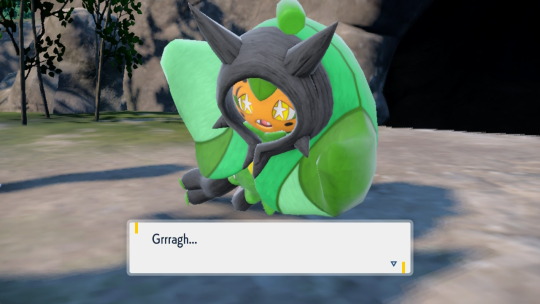

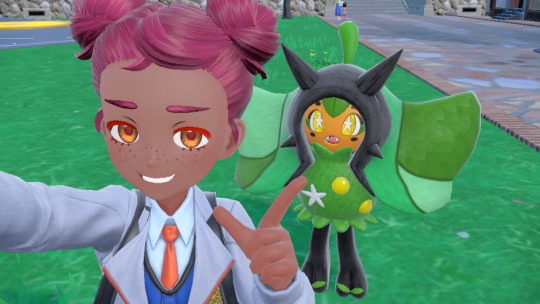



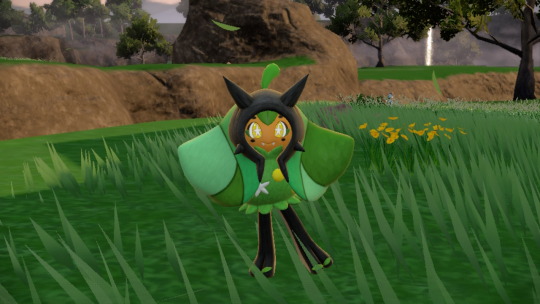

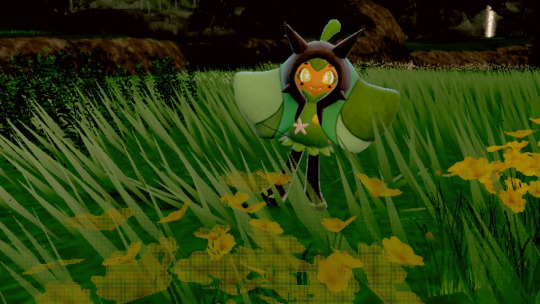
Edit: Unfortunately I have to sacrifice one of the images because for some reason it won’t let me turn off top posts, and since this is getting a lot of traction, it’s stuck there…… I needed something to spoiler it on my top posts cause many of my peers haven’t yet been able to play/watch The Teal Mask for whatever reason!
#‼️SPOILERS‼️#The kiwi speaks#I’m the only one out of everyone I know who’s played/watched the dlc#so tag rant will be at the bottom this time for people who don’t want spoilers!!!!#pokémon spoilers#Pokémon scarlet and Violet spoilers#Pokémon#Pokémon scarlet#Pokémon violet#Pokémon scarlet and violet#the teal mask#ogerpon#I would die for you ogerpon.#I’m so serious when I say this please 😭😭😭😭😭😭#IM SO ♥️♥️♥️♥️♥️♥️♥️♥️♥️#IM SO IN LOVE WITH OGERPON GOD DAMMIR#friendship ended with Gholdengo. Ogerpon is my priority now.#/JJJJJ#I named mine Milly-Babel because I couldn’t decide on either name so why not both#I also caught her in a friend ball she was so incredibly deserving of this status#she’s my favorite thing ever I love her I love her I love her I love ogerpon I love you I love you I lo#I AM SO. ONE DAY MAKING AN ANIMATIC WITH YOU BECAUSE. WELL I KNOW A SONG.#HHHHHHHH#okay rant over#I’m normal.#there is no live laugh love only o ger pon
140 notes
·
View notes
Text


heavy is a feeling I like
#we deserved to see more of this little gaylet hallucinating her ex and losing her mind slowly im so mad.#arcane#caitvi#caitlyn kiramman#vi#piltover’s finest#fanart#my art#wlw#tgeyre so blue wow ♥️
3K notes
·
View notes
Text

do you finally see me?
#LOTUS ALIEN STAGE ART FINALLY WHO CHEERED ⁉️⁉️⁉️⁉️⁉️⁉️⁉️⁉️#i cried so hard coloring this im never doing cool colors again this hurt me more than round 6#i listened to cure and i want you on like a six hour loop while drawing this i fear i'm not ok#oh also i have no idea what till's supposed to look like bc i couldn't be bothered to pull up a ref so if that doesn't look like him my b#all i know is his hair is gray and that's about it 💀💀💀💀💀#anyway mmm doomed by the narrative unrequited yaoi you KNOW i'm devouring that up#so glad they're reunited in heaven finally ♥️#luka next!! (i want his ass DEAD.)#alien stage#alnst#alnst ivan#alnst till#ivantill#round 6#vivinos#lotus draws
2K notes
·
View notes
Note
rice.... could ypu draw the new resconstructed v2
guess what...

i already did...
#MY GIRL IS ALIVE AND WELL!! ♥️♥️#posting this earlier than on twt#im so happy ahes alive#ultrakill#ultrakill v2#v2 ultrakill#rice's art
2K notes
·
View notes
Text
IM GONNA THROW UP. CONGRATS STOB NATION…THE STORYBOARDS ARE CANON!!!!

#bonus feature list for the digital/physical release of sonic 3#VFFGH I OPENED TWT AND DISC TO FIND THIS IM SO HAPPY#god the edits…I can’t wait#I’m so happy this is the best gift for us while we’re grieving#more canon stob yes please#I need the scene like yesterday#♥️♥️♥️#stobotnik#agent stone#jimbotnik#agent stone x robotnik#robotnik x stone
322 notes
·
View notes
Text
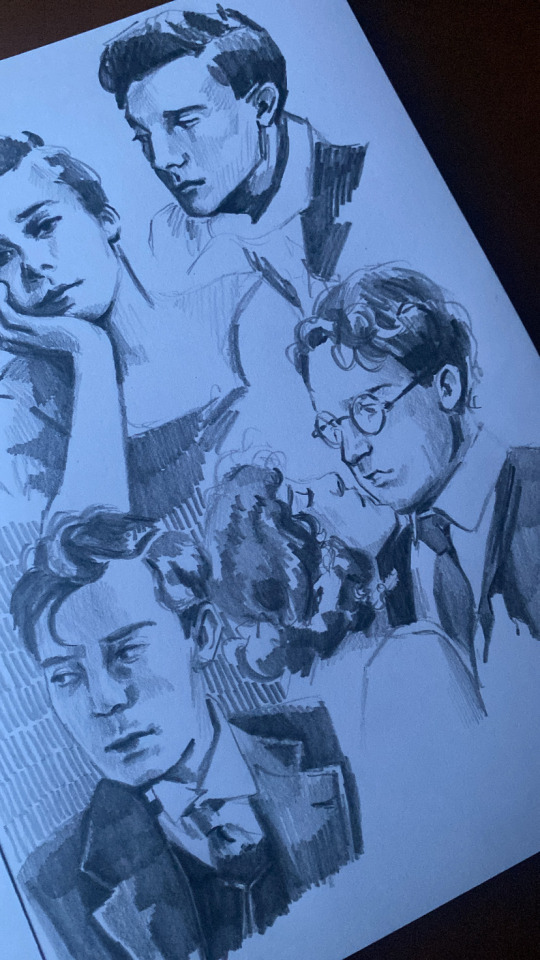
I splurged on a new pencil/sketchbook today (late Christmas present/early bday present??) & WOW😳 I’m obsessed…💘 EXPECT A LOT MORE ART🙏🙏🙏🙏🙏🙏🙏🙏🙏🙏🙏
#literally idk if it’s the paper or the pencil or what#but drawing is SO smooth and so buttery and…it’s all I wanted to do today😆♥️#who better to practice with than Buster Keaton & some other silent film stars♥️♥️♥️#(im obsessed with silent films…they are SO GOOOOOOOOOOOOOOOOOD)#anyways I think I’m also going to draw a lot of Kurosawa films as well#because he was just😫🤌#I love good movies#I saw a David lynch film yesterday & now ive seen everything he’s made🙏#my favorites are twin peaks & mullholland drive#I don’t think I need to watch eraserhead again😆 but I did still like it bc I’m weird#sorry for the movie rant bahahahahahahahahaha#buster keaton#pencil illustration#pencil sketch#sketchbook#artists on tumblr
32 notes
·
View notes
Text


i will love you if i see you every tuesday
and i will love you if i never see you again
lemony snicket, the beatrice letters
#good omens#good omens 2#good omens spoilers#good omens art#aziracrow#objectively nowhere mear my best art but ♥️ i enjoyed making it!#pls pay attention to: the way the haloed light shifts from around both of them to just aziraphale to between them to neither of them#and the way they stand on first meeting then always beside each other. crowley is offcentre in the last one bc aziraphale would usually be#standing next to him. also i colour picked a lot of the colourscheme for this from that beautiful car/crowleys eyes gifset? idk whether i#should tag op. they inspired me so much with this !!#im not usually great at colourschemes lol#aziraphale#crowley#ineffable husbands#ineffable divorce#.jmade
2K notes
·
View notes
Note
OMG I GOT IN THE VOID STATE WITH YOUR METHOD
So basically I tried your distraction method and then after meditating for a bit I started distracting myself (not about my dr but still) and then for a few seconds I literally COULD NOT feel my body and then it took me back cause I focused on the 3D but still IM SO HAPPY OMG LIKE I WAS LOSING MOTIVATION TOO SO THANKS TO YOU FOR MAKING IT SO EASY
♥️♥️♥️♥️♥️♥️
#void state#void#law of assumption#loa tumblr#loassumption#loa blog#loablr#manifestation#loa#the void state#void success
89 notes
·
View notes
Text

STOP BEING SO CUTE
(he never will stop)
#the band ghost#papa emeritus iv#copia#his heart hands are so cute#heart with devil horns#idk im just melting#kissing him all over#my baby ♥️#fraterimperatorr og post tag
249 notes
·
View notes
Text


Also im a maid
116 notes
·
View notes
Text

have a holly jolly christmas Guys <33 redrew a little sketch frlm twoyears back.
old image below ⬇️

yes i posted it on reddit. 😭
#IM SO SORRY FOR THE LACK OFCONTENT#im pretty much overseas and posting mostly on tiktok rn ahah#more tf content I SWEAR#But for now EAT MY DHMIS FOLLOWERS ♥️#dhmis#dhmis lamp#dhmis fanart#tehee giggle#dhmis shrignold#lampnold#larry the lamp#shrignold the butterfly#Tony the talking clock#colin the computer#dhmis spinich can#dhmis bread boy
87 notes
·
View notes